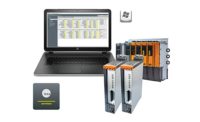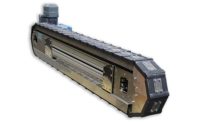The changes confronting the global automotive industry are forcing automakers to reduce time to market in a cost-effective manner without sacrificing quality or performance. In tandem, the growing requirement for world class manufacturing processes means that many top automakers are looking to evolve their approach to automotive manufacturing.
In addition, there is an increasing need to begin the industrialization of a new vehicle before the final design buy-off is completed combined with the industry demand to incorporate intelligent digitalization and Industry 4.0 compliance. This is why companies such as Comau, a global industrial automation leader, have been investing heavily in computer-aided-design technologies that can optimize the effectiveness and quality of new production lines using virtual simulation to fine tune engineering and programming before the actual rollout of a new production line. This is called Virtual Commissioning.
Virtual Commissioning improves the engineering process by integrating and validating a production line using computer-based modeling within a virtual environment. By connecting the PLC to the virtual manufacturing cell, engineers are able to cost-effectively validate the processes and “de-bug” the system well before the physical deployment of the line itself. As a result, the company can ensure line-readiness such that the actual installation onsite is fast and easy with few, if any, issues to resolve. In addition, because the line has been fine-tuned before it’s deployment, the minor issues that may emerge during the installation process can be quickly solved.
Today, with multiple virtual rooms located in the company’s global engineering centers, Comau is able to integrate the Virtual Commissioning process globally as part of its comprehensive offering. This means that instead of simulating only some features, or testing only a handful of the robots used within any given system, engineers can now verify more completely the build specifics and cycle times of the line. Even more important, the increasing requirement to modify variables during the design and build phase due to changes in the vehicle design for instance, can be easily integrated into the PLC and robots without having to shut down the entire line. In fact, the company was recently able to reprogram 200 robots in just 3 days using Virtual Commissioning as opposed to roughly 10 weekends had the work been done on the factory floor. Such results are also due to the efficient connection between the PLC and the simulation, which is aided by the fast implementation of communication technologies.
The Virtual Commissioning process not only creates time and cost savings related to the installation of the new line, it can also help streamline the internal buy-off process. This is because Virtual Commissioning provides clients with a more precise overview of a line’s expected performance together with 360° process visibility. What’s more, Virtual Commissioning’s role as a powerful tool in the implementation of Industry 4.0-enabled equipment, sensors and data collection processes is further proof of its ability to add bottom-line value in the short-term. The results speak for themselves. Automakers around the world are seeing significant improvements in terms of time to market, reduced costs, increased ability to handle unforeseen build variations, and overall and production efficiencies. This global success proves that the versatility of this innovative engineering solution can meet the requirements of even the most demanding customers today and in the future.




